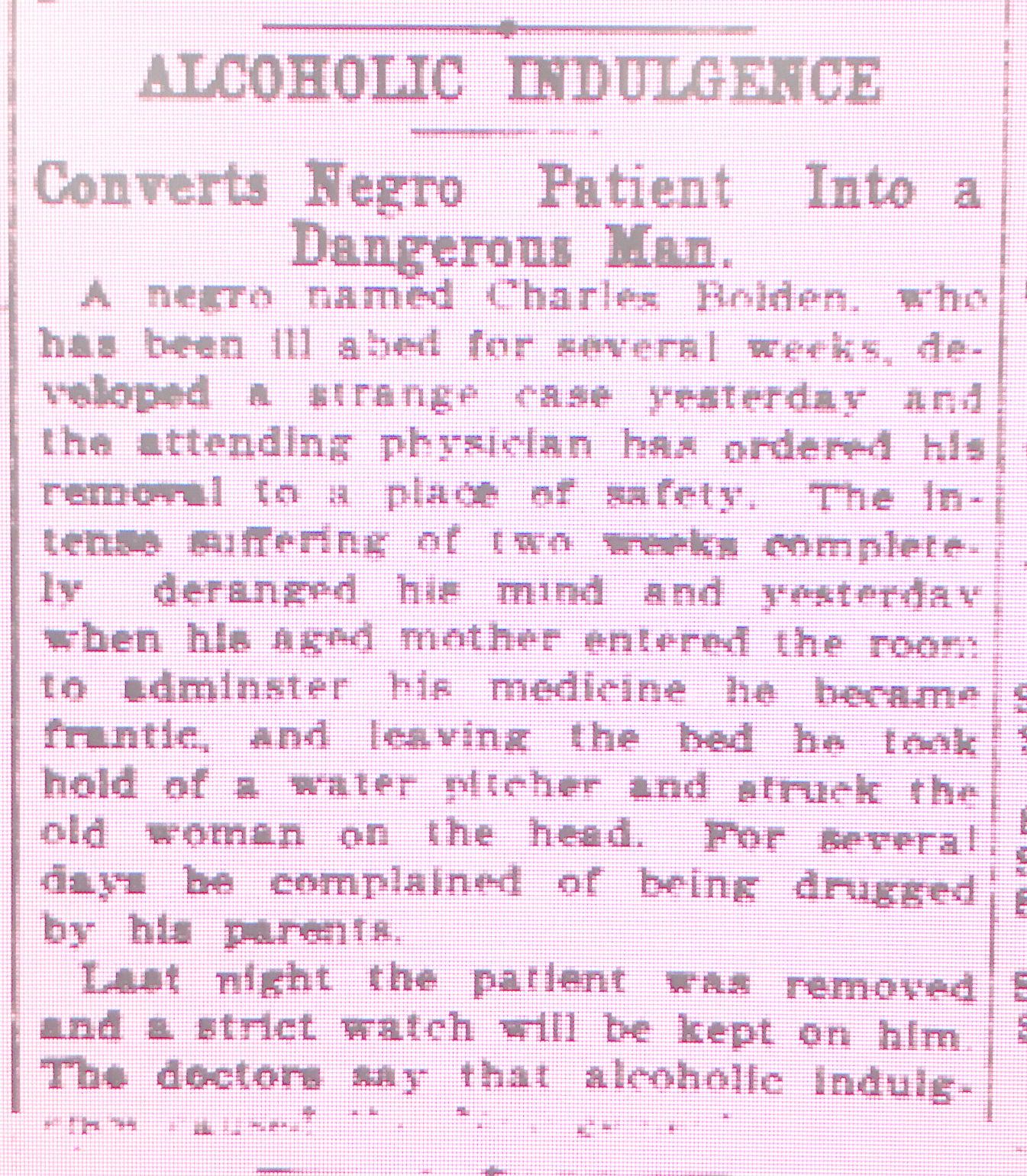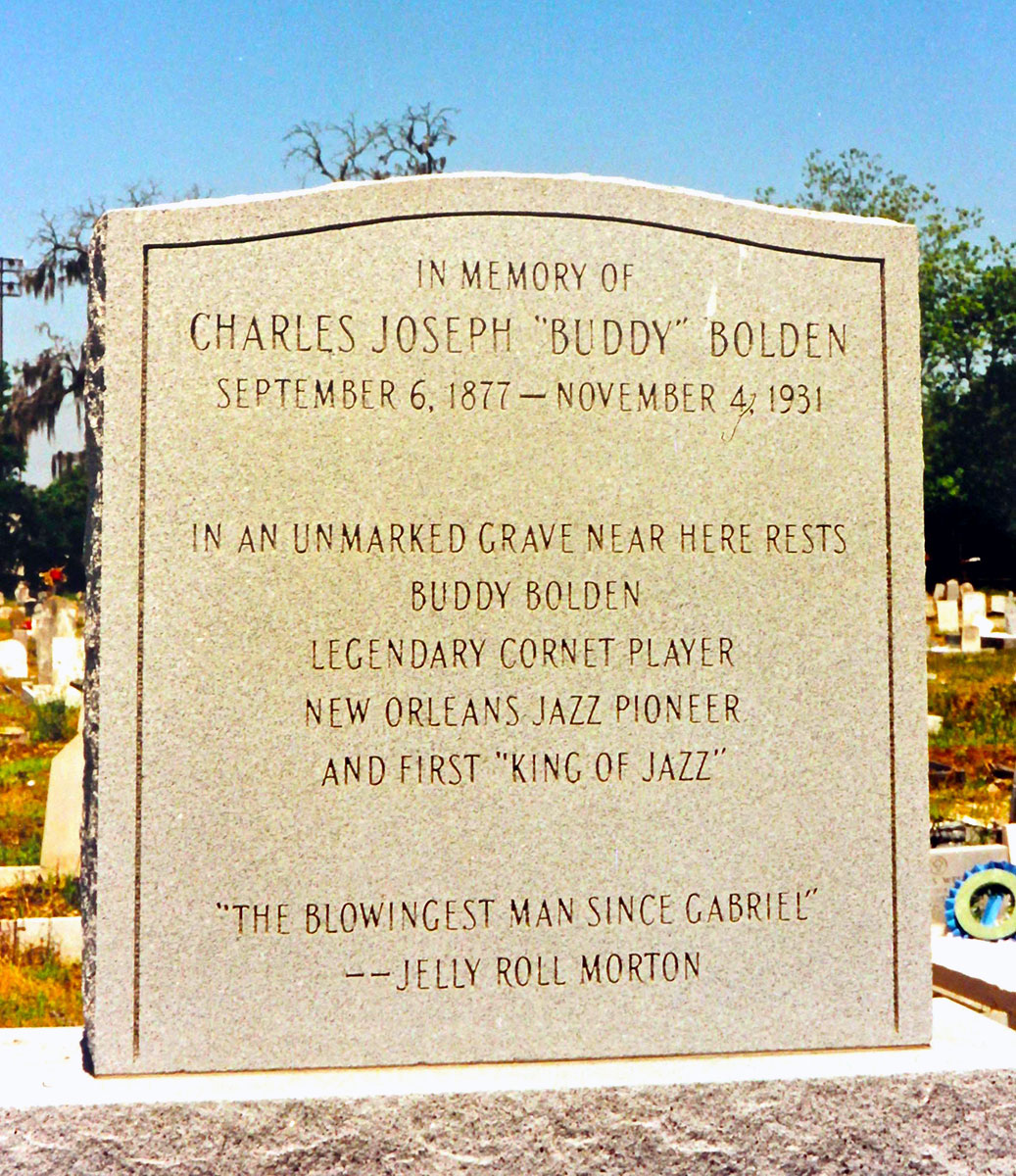Take a moment and think about who is the ‘Father of Jazz.’ Was Louis Armstrong your guess? You’d be incorrect but who could blame you. He is broadcasted as the most influential jazz figure known and is who’s referenced in elementary schools when the subject of jazz music is brought up. However, I wanted to go farther back and find who society deemed as the “Father” not an influencer. To begin, I started with the most frown-upon website, the Wiki page on the initial Google search engine, to gain some sort of idea of who he could be. A man I’ve never heard of, known as Charles ‘Buddy’ Bolden (September 6, 1877 – November 4, 1931).
“Buddy was a light brown-skin boy from Uptown. He drank all the whiskey he could find, never wore a collar and a tie, had his shirt busted open so all the girls could see that red flannel undershirt, always having a ball—Buddy Bolden was the most powerful trumpet in history.”
Buddy was credited with having created a combination of ragtime and Blues that heavily contained improvised notes-thus jazz. It was a conscious decision to ignore the sheet music but it was rumored he – along with his band – could not read it well. “He played from his head.” However, his skill while playing on his brass coronet was not the only thing he was recognized for but the volume. ‘Clarinetist Alphonse Picou said: “He was the loudest there ever was because you could hear Buddy’s cornet as loud as what Louis Armstrong played through the mike.”’ He individually possessed the skill to be great but his companions whom he formed a band with helped ensure his notoriety.
“At one of the band’s first public performances in 1898, Bolden chose to play Home Sweet Home at a send off of American troops bound for Cuba during the Spanish American War. The sentimental song nearly sparked a mutiny by the troops who were reminded of their destination and the fact that some of them would never return to the United States. From that point Home Sweet Home was banned as a performance at any military war zone send-off.”
From then on they went on to monopolize their music technique, never  being truly challenged by any band or individual. However, that left no one to beat them so thus began the cycle of self-sabotage. Though there are contradictory sources that say that the pressure of competing bands did push Buddy deeper into his unhealthy habits. Nonetheless, Buddy’s eccentric lifestyle full of women, alcohol, crime, and deteriorating mental health resulted in a downward spiral.
being truly challenged by any band or individual. However, that left no one to beat them so thus began the cycle of self-sabotage. Though there are contradictory sources that say that the pressure of competing bands did push Buddy deeper into his unhealthy habits. Nonetheless, Buddy’s eccentric lifestyle full of women, alcohol, crime, and deteriorating mental health resulted in a downward spiral.
In 1906, he was deemed ‘brainsick’ and bed ridden. The following year would be his last performance with the Eagle Band at the New Orleans Labor Day parade. ‘He lost his position as bandleader after alienating both the performers and many fans.’ Closely followed on June 5, 1907, he was put in a mental institution where he would spend the next 25 years up until his passing (age 54), but at that point there really was no sanity left, just utter insanity and dejection. Later on in life, his diagnosis of ‘brainsick’ would be known as schizophrenia; the jazz historian Joachim-Ernst Berendt likened his condition to that of the Dutch painter Vincent Van Gogh. His final resting place is recorded to be at Holt Cemetery. He once had everything only to be discarded as nothing. Placed in an unmarked grave until a tombstone was place in 1998 to commemorate him yet his actual burial site remains unknown.
Sadly, music recording was in his infancy so there is no recorded music played by him. Legend has it- yes legend- that a cylinder that holds a recording from the 1890s. He was forgotten not long after. In early documentaries and films in regard to his passing media claims that only the mention of his time in the hospital beds made the cut rather than his time on the stage. He was no longer viewed as the man who played from his broken heart but the man who was engulfed into a world full of melancholy and paranoia. Time has changed and new films have been produced in his honor. No rain, shine, or hurricane can erase the lasting impact he had on New Orleans music culture.

Sources:
https://www.npr.org/2017/07/15/537224556/in-new-orleans-theres-a-piece-of-music-history-around-every-corner
https://www.npr.org/templates/story/story.php?storyId=17260407
https://acloserwalknola.com/places/buddy-boldens-house/
https://www.jazziz.com/a-short-history-of-the-legend-of-buddy-bolden/
https://www.blackpast.org/african-american-history/bolden-buddy-1877-1931/
https://www.nola.com/entertainment_life/music/article_30f734a8-0994-53a1-b50f-7fe7a193b03a.html
https://www.allaboutjazz.com/buddy-bolden-the-insane-life-of-the-founder-father-of-jazz-buddy-bolden-by-jeff-winke